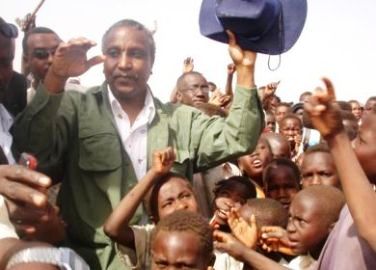SPLM-N says its eyeing comprehensive solution to Sudan’s problem
February 28, 2013 (KHARTOUM) – The Secretary General of the Sudan People Liberation Movement North (SPLM-N), Yasser Arman, underscored that their upcoming negotiations with Khartoum in mid-March is part of their pursuit for a comprehensive solution to country’s crises.

The SPLM-N official went on to say that the anticipated talks with the Sudanese government will prove to the international community “the regime’s intransigence will reveal to [the] international community the Sudanese people’s right to freedom and democracy”.
The former presidential candidate said that despite their convictions, they responded positively to the African Union mediation team’s invitation for negotiations out of desire for addressing the humanitarian situation in the Blue Nile and South Kordofan and in compliance with the United Nations Security Council (UNSC) resolution 2046.
The UNSC resolution issued in May 2012 ordered Sudan and the SPLM-N to cooperate in order to end the conflict in the two regions. Under the resolution, the two parties are supposed to negotiate on the basis of the 28 June 2011 agreement they signed in Addis Ababa before it was scrapped by Sudanese president Omer Hassan Al-Bashir.
The Sudanese government and the SPLM-N held a number of indirect talks last year in Addis Ababa but did not engage in direct discussions on the agendas proposed by the mediation team.
In August 2012 however, they signed a three-month humanitarian agreement which was not implemented after both parties failed to agree on the modalities of its implementation.
On the political front, Sudan demanded the disengagement of South Sudan army from SPLM-N forces while the latter sought a comprehensive process before agreeing to direct negotiations.
The Sudanese government also refuses to negotiate with SPLM-N rebels, fearing that it could be forced to accept wealth and power sharing arrangements similar to the ones included in the 2005 Comprehensive Peace Agreement (CPA) signed with the South.
The SPLM-N fought as part of the Southern rebel army during its war with the north, but were left on the Sudanese side of the border after partition.
Khartoum accuses Juba of backing the rebels and has blocked the implementation of a number of deals they signed last year, including one on Southern oil exports, until the South severs its alleged ties with the group.
The conflict in Blue Nile started in September 2011, a few months after neighbouring South Sudan seceded under a 2005 peace deal that ended decades of civil war. A few months earlier a similar conflict broke out in South Kordofan which also lies on the borders with South Sudan.
Arman went on to talk about the issue of the “New Dawn” charter signed by northern opposition parties and rebel groups including the SPLM-N in Kampala last month.
He said that Khartoum is not angry over the charter because of the issue of secularism or using force against it but because it united opposition in one front.
The SPLM-N Sec Gen ruled out any nullifying of the accord saying that it contains interconnected issues of removing the regime then installing an alternative system to avoid chaos.
However, he expressed openness to more dialogue with other political powers to address controversial clauses such as the role of religion.
Arman emphasised that the SPLM-N is not keen on armed struggle and that if other peaceful venues are open then are willing to utilize them.
(ST)
